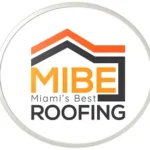The Ultimate Guide to Commercial Roofing Services in Miami: What You Need to Know
Section 1: Understanding Your Commercial Roofing Needs
When it comes to your commercial property in Miami, having a sturdy and secure roof is essential. Commercial roofing services are crucial for ensuring the structural integrity, safety, and overall aesthetic appeal of your building. However, with so many options available, it’s crucial to understand your roofing needs to make an informed decision. Before selecting a roofing contractor, consider factors such as your building’s age, size, location, and intended use.
Your commercial roofing needs can vary greatly depending on several factors. For instance, a restaurant or food facility requires a more specialized coating system to protect against fire and food grease, while an office building may have different ventilation requirements. Other considerations include environmental factors, such as extreme weather conditions, wind speeds, and precipitation. Moreover, ensuring compliance with local building codes and regulations is also a must.
Section 2: Common Commercial Roofing Options in Miami
In Miami, commercial properties can choose from a wide range of roofing options. Among the most popular and widely used options are Single-Ply Roofing Membranes, Modified Bitumen Roofing, Asphalt Shingle Roofing, Metal Roofing, Clay or Concrete Tile Roofing, and Solar Roofing Systems. Each type has its own advantages and disadvantages, making it essential to assess your building’s requirements before making a decision. For instance, single-ply roofing membranes are flexible, lightweight, and eco-friendly, making them a popular choice for commercial buildings in Miami’s subtropical climate.
In contrast, modified bitumen roofing systems offer improved resistance to hail, UV rays, and chemicals, making them ideal for facilities that handle chemicals or other hazardous materials. Asphalt shingle roofing, on the other hand, is a more cost-effective option for older buildings that don’t require specialized functions. Metal roofing, widely used in Miami’s contemporary architecture, provides exceptional strength, durability, and style, but can be noise-prone during rain.
Section 3: Factors to Consider When Selecting a Commercial Roofing Contractor in Miami
While it’s tempting to rely solely on pricing when choosing a commercial roofing contractor in Miami, this is one crucial mistake you can make. With the stakes being high, ensuring you’ve selected a reliable, competent, and insured contractor is essential. To avoid potential costly repairs or even law suits, investigate a contractor’s reputation by reading reviews, checking with the Better Business Bureau (BBB), and obtaining references. Other crucial factors to consider include the contractor’s certification, licensing, and professional affiliations, such as those with the National Roofing Contractors Association (NRCA).
When evaluating contractor proposals, compare the specifics, including scope of work, materials used, pricing, and project timeline. Also, make sure your chosen contractor offers a clear and comprehensive warranty, inclusive of both workmanship and materials. Last but not least, establish a rapport with the contractor and be wary of anyone who pressure-touts for an agreement without fully addressing your roofing concerns.
Section 4: Ongoing Roof Maintenance and Inspections for Your Commercial Property in Miami
In addition to having a solid roof installed by a reliable contractor, routine maintenance and inspections are necessary to extend its lifespan, ensure its safety, and minimize potential hazards. Scheduling regular roof inspections helps detect and address potential problems early on, reducing costs associated with emergency repairs and replacements. Proper roof cleaning and debris removal are crucial, especially for facilities situated near bodies of water.
Adequate roof coatings, sealing, and restoration work are vital to mitigate the effects of weather exposure and aging. Regular upkeep, such as inspecting flashings, gutters, and downspouts, is crucial to avert costly leaks and maintain structural integrity. By recognizing and addressing common roofing problems proactively, you ensure a safer and more environmentally friendly workplace, ultimately translating into long-term cost savings.
Conclusion
Ensuring the longevity and overall success of your commercial property in Miami hinges on partnering with a trustworthy and reliable roofing contractor, choosing a suitable roofing material, and adopting a regular maintenance regime. By grasping these key factors and best practices, you will be equipped to navigate the complexities of commercial roofing in Miami like a pro, guaranteeing the integrity and beauty of your property for years to come. Remember, at the end of the day, your building’s safety and functionality ultimately depend on a solid foundation – starting from the roof up! freeslots dinogame telegram营销




